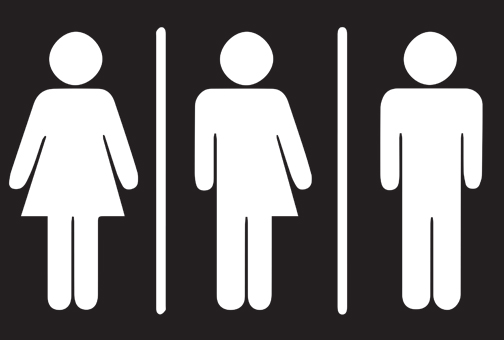Senate Bill 6, also known as the Bathroom Bill, proposed by Lt. Governor of Texas Dan Patrick, would require transgender people to use bathrooms in federal buildings, public schools and public universities that match their biological sex and not their gender identity.
If approved, SB 6 would allow exemptions in case of emergencies, custodial purposes, parents of young children and the disabled, among others.
“The bill also allows school districts to make accommodations or upon request those preferring an alternative arrangement,” said Texas state Sen. Lois Kolkhorst, R-Brennan, at the capitol during a news conference announcing her filing of the bill.
SB 6 would prohibit any local government from adopting an ordinance that would prevent a business from making their own policies for dressing rooms, showers and restrooms.
The proposal comes after Texas public schools received a letter from the U.S. Department of Education and the U.S. Department of Justice in May of last year clarifying aspects of Title IX, a sex discrimination law that applies to federally funded educational institutions. Schools were instructed to relate to students by their gender identity, and if federally funded schools failed to follow the new guidelines they could lose their federal funding.
If passed, the bill would also override the current local nondiscrimination laws that allow transgender Texans to use the bathroom that matches their sexual identity.
Despite this, Patrick said Texans want this bill to be approved.
“We know it’s going to be a tough fight,” Patrick said at the capitol during a news conference announcing the bill. “We’re on the right side of history. You can mark today as the day Texas is drawing a line in the sand and saying no.”
After North Carolina passed its “bathroom bill,” the state lost $395 million in revenues according to an article in the San Antonio Express-News that referenced local North Carolina papers.
A similar thing could happen in Texas, according to the Texas Association of Business, a business lobby group that said SB 6 could cost the state up to $8.5 billion and more than 100,000 jobs.
Patrick defended SB 6 by referencing Forbes magazine, which has North Carolina as the second-best state for business in the country.
After the bill proposal, Texas Senator Jose Rodriguez, D-El Paso, released a statement voicing his concerns for the filling of SB 6.
“The bill would put a target on the back of innocent transgender and gender-nonconforming people who want nothing more than to go about their lives in peace,” Rodriguez said in a press release. “As it is, this community disproportionately experiences harassment, homelessness and violence.”
Interim director of the Women and Gender Studies Program at UTEP, Guillermina Nuñez-Mchiri said the proposal is a reaction of unfounded fear toward the LGBT community.
“There is an assumption that people who are LGBT are morally not equal to the rest of us, that’s not accurate. ‘If we let someone who is transgender into a restroom they’re gonna attack us’ that is unfounded, where is the data of that?” Nuñez-Mchiri said. “It’s all based on fear, and we can’t move in the direction of fear. I would be more concerned about people who are registered as sex offenders or people who have a record of being aggressive and violent.”
Adriano Perez, a recent UTEP graduate and transgender El Pasoan who has been involved with organizations that support LGBT rights, is concerned about the bill.
“I comprehend what he is saying, (but) I do not believe what he is saying to be true or valid,” Perez said in an email interview. “Personally, I’m angry. I’m also worried and scared about trans youth, specifically, trans-feminine youth in this state.”
Perez also said this proposal has caused people to use misinformed language against the LGBT community, and a possible approval of the bill could cause even more violence against this community.
“I think we all need to consider what it means to make something like this a law. If the state can control who uses a bathroom, what they think a person’s gender is, there will undoubtedly be an increase of citizens believing they too can do this,” Perez said. “Videos of this happening have shown us that many times those interactions are violent and the person hurt is the transgender person.”
If SB6 is approved, UTEP as a state institution would have to comply with the bill.
Jenny LaCoste-Caputo, executive director of Media Relations and External Communications for the University of Texas System, said in an email that the UT System has some concerns about the bill.
“UT System’s Office of General Counsel and Office of Government Relations continue to analyze Senate Bill 6 to determine the impact the bill would have on UT institutions should it become law,” LaCoste-Caputo said. “A chief concern that has been raised is that the bill may conflict with Title VII and Title IX, federal nondiscrimination laws. We will be monitoring closely and sharing information with legislators as appropriate.” There is still no exact date as to when the bill will be heard by the Legislature. House Speaker Joe Straus has said the issue is not the “most urgent concern of mine.”
The Prospector contacted UTEP President Diana Natalicio for a statement on the proposal of SB 6, but has not yet received a response.










